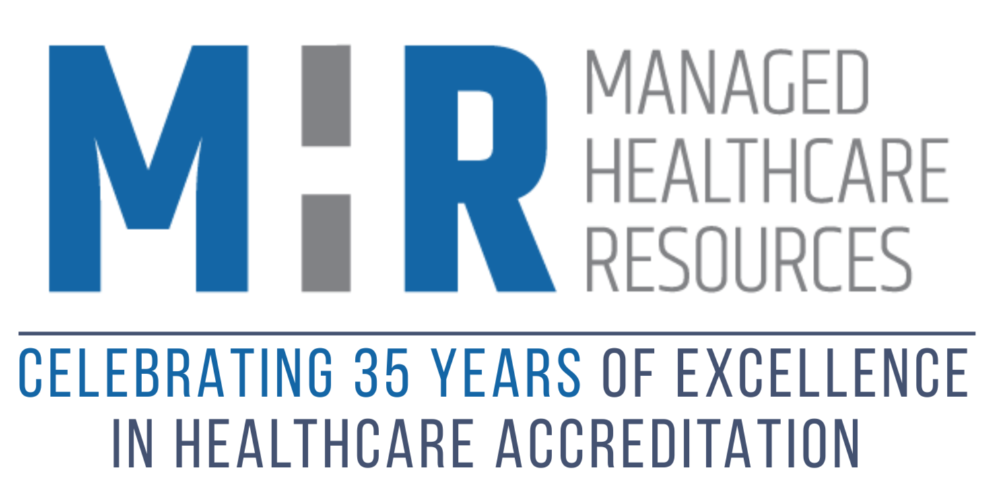
Estimated time to read: 4 minutes
Have You Ever Experienced a Situation Like This?
You are the Quality Lead and met with executive leaders about NCQA and heard cringe-worthy comments, such as:
- Why is NCQA so complicated?
- We don’t need an organization telling us what to do!
- Why target the highest goal when we can “get by” with the bare minimum to meet the requirement?
- What’s the ROI for NCQA Accreditation?
- Do we really need to complete this report by the end of the year?
- You need to do the reports along with your other work.
- Why do you need training?
- We have to worry about CMS audits, state audits, and Stars and don’t have time for NCQA.
Hearing cringe-worthy comments like these not only disheartens those doing the work but belittles and disparages the importance of the quality improvement process and its importance to members.
When leadership does not recognize or understand the value of NCQA Accreditation, corporate priorities can shift and incapacitate progress toward quality goals.
Navigating Roadblocks is Part of Your Role
If you are a Quality Lead, you are expected to navigate around roadblocks, which can include unsupportive leaders making cringe-worthy comments! You know the impact of all the roadblocks on your NCQA Accreditation status, and know that it can cause blowback on you eventually, as everyone has short memories!
Which Roadblocks Have You Encountered?
- Our small team is new to NCQA, and no training is planned or budgeted
- Staffing resources are insufficient
- Information systems are inadequate to capture critical information
- A look-back period cannot be met
- A mock file audit shows gaps
- Delegates are found non-compliant or have significant gaps
- Non-accredited delegates have taken over work that previously provided automatic credit
- “New” delegates were found after review by NCQA
- Reports or data are missing, and analyses have not been conducted
- Critical factors cannot be met
- Business owners are non-responsive
- Senior leadership says “support NCQA,” but prioritizes other projects or struggles to manage competing priorities
What do you do? Before presenting the problem to your leader, consider this approach.
- Define the problem. Assess the issue; don’t assign blame!
- Conduct a root cause analysis (RCA)
- Explore possible solutions
- Evaluate your options
- Present a solution to your leader, as necessary
- Implement the best option
An Example
Problem: Cringe-worthy comments from a new VP dishearten the team, shifting priorities and causing delays in meeting deadlines.
RCA: A new VP is unfamiliar with NCQA standards, areas of accountability, how scores are calculated, and that failure to meet requirements will negatively impact the company’s ability to conduct business in the state.
Possible Solutions: Discuss one-on-one with the VP and offer training. Have a joint meeting with the VP, Accreditation Lead, and other team leads as appropriate. Or meet with an executive sponsor.
Evaluate the Options: Discussing one-on-one with the VP is the best first approach, explaining the negative impact on the staff and the possible consequences of not having accreditation, such as losing State contracts, lower ratings and satisfaction scores, and loss of membership. Having a joint meeting allows others to be heard and voice their points of view. NCQA Accreditation will likely have an organizational executive sponsor who can intercede and champion the quality process.
Present a Solution to Your Leader: The problem, RCA, possible solutions, and selected option were considered, and the decision was to first schedule a one-on-one meeting with the VP and suggest MHR’s training on the Basics of NCQA Accreditation.
Implement: The meeting with the VP and Quality Lead concluded with a discussion that when executive leaders are authentic about their support of NCQA and acknowledge the staff’s passionate commitment to excellence, then members, providers, and the organization benefit.
When a Roadblock is Financial
What sets organizations apart is having a plan of action to close the gaps, including the quantification and cost of the type of support and resources needed to meet NCQA Accreditation and regulatory requirements and improve quality ratings.
How Can MHR Help?
Getting everyone on board with NCQA is not always easy, but that’s what MHR Consultants do best. We work with all levels of the team, helping you formulate a plan of action based on a Full Gap Assessment and assisting with quantifying costs and how dollars can be allocated.
We coach teams on maneuvering around roadblocks and step in with meetings, training, coaching, auditing, and submitting your “unique” questions to NCQA for interpretation.
We are also forthright in telling you when your organization is not in synch and is heading down the wrong track.
With over 33 years of NCQA consulting, we have seen and heard it all from all types and sizes of health plans across the United States, which makes us among the top consulting firms in our field! Let us know how we can help. Schedule a Discovery Call.
Call to Action:
- Schedule a new or updated Full Gap Assessment
- See our related blogs:
Invest in NCQA Training – Build Value
Training Plans Are Key to NCQA Surveys
Are You Staffed Up For Your NCQA Survey?
- Contact us or email Susan K. Moore at [email protected]



